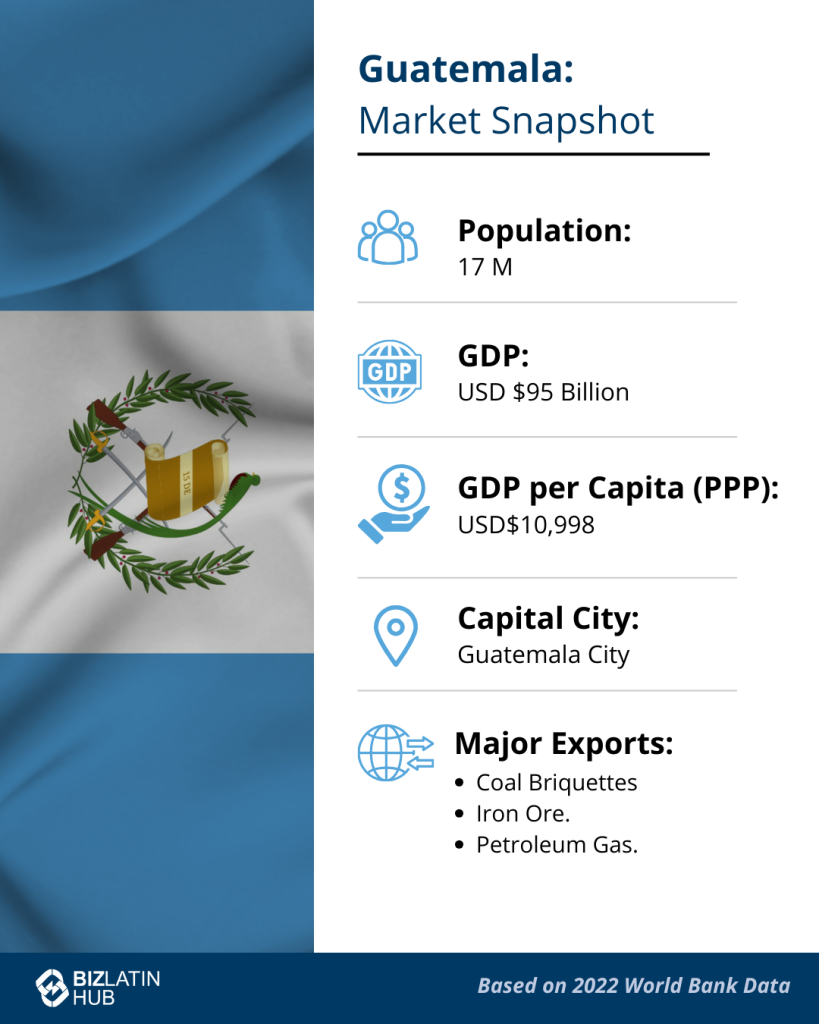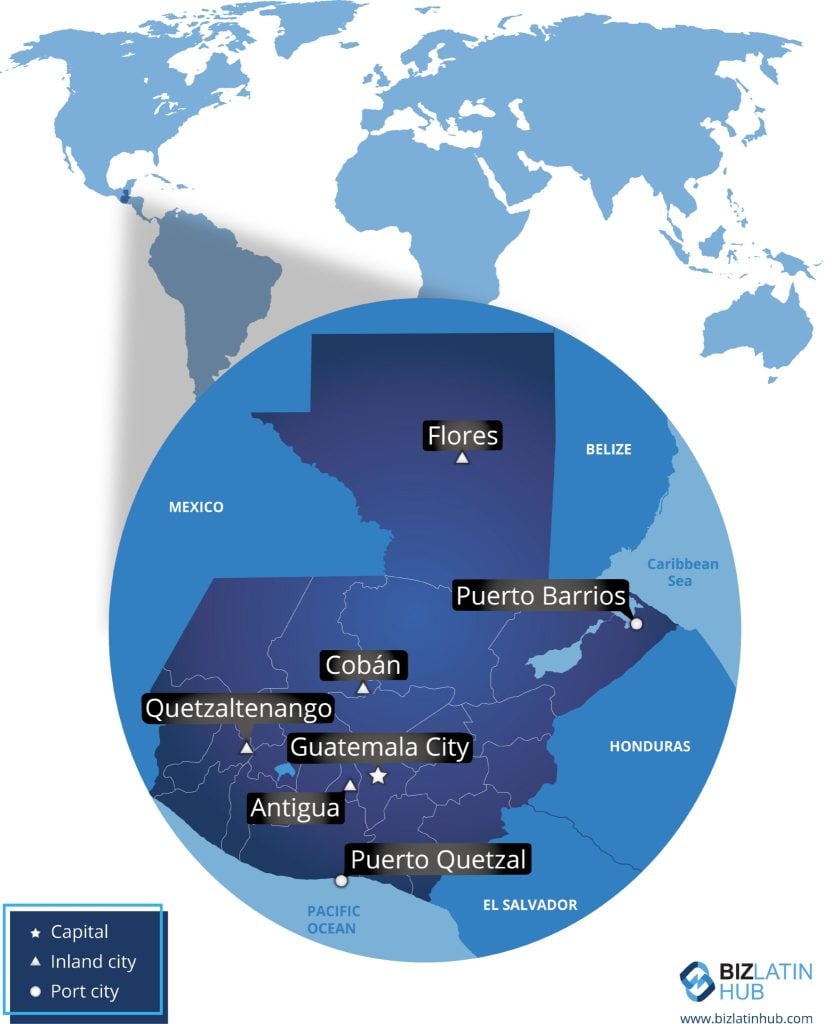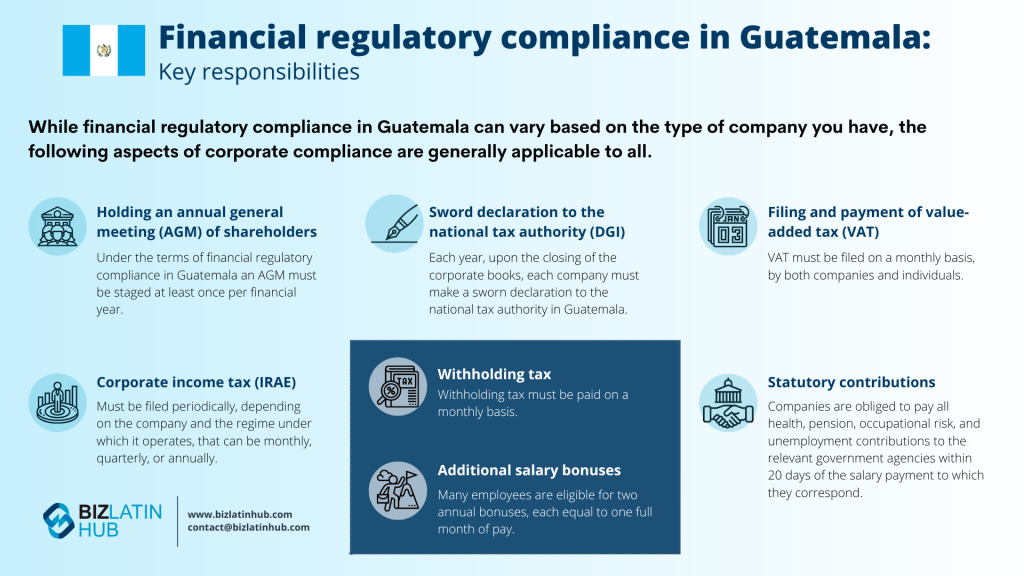Before you register a business in Guatemala, important research must be done. Proper invoicing is crucial, particularly when it comes to trading goods or contracting services. Failure to comply with invoicing requirements for a foreign company in Guatemala could negatively impact your company’s reputation with local authorities, and result in fines or other legal issues.
Understanding the invoicing requirements for a foreign company in Guatemala should be one of the first steps you take. The country remains developing, but it is growing quickly, and part of this is down to modernization and improved regulation. This makes it important to stay compliant and fully above board.
Whether you are already doing business in the local market or planning to expand here, read on to find out about invoicing requirements for a foreign company in Guatemala. With years of experience, Biz Latin Hub is here to help you out with that. We can make sure you stay compliant and legal, allowing you to relax and concentrate on your business.
Why invest in Guatemala?

Despite the challenges posed by the pandemic, Guatemala’s economy recorded an impressive 8% growth rate from 2020-2021, which has led to a corresponding increase in prosperity among the population, with GDP per capita reaching $5,025 in the same year.
These positive figures are supported by significant levels of Foreign Direct Investment, with over $3.5 billion invested in the country in 2021 alone.
But, proper invoicing requirements for foreign companies in Guatemala remains a top priority for local law enforcement and compliance standards held by the nation.
Guatemala, a part of the Northern Triangle along with El Salvador and Honduras, holds a key geographical position between these nations and Mexico. Additionally, its Pacific and Caribbean coast ports play a significant role in making it a logistics center for Central America, responsible for a whopping 30% of all goods transported through the sub-region.
Guatemala’s biggest exports are oil and gas, bananas, coffee, sugar, and non-precious metals. The largest recipients of goods from the country include the United States and China, as well as Mexico, El Salvador, and Panama. It is extremely important to follow invoicing requirements for a foreign company in Guatemala when it comes to the trade of these goods.
How does invoicing work in Guatemala?

Starting in 2018, Guatemala mandated that all taxpayers, including foreign companies conducting business in the country, must utilize the new online electronic invoicing system known as “Factura Electrónica en Línea” (more commonly referred to by its acronym, “FEL”).
This system enables taxpayers to securely issue invoices and other electronic tax documents (ETDs) through online authorization. It also enables compliance for a foreign company in Guatemala.
To use FEL, you will need to register yourself with the Superintendency of Tax Administration (SAT). Either you or your legal representative must be proficient in Spanish.
As a business based in Guatemala, you will be issued a VAT number and be obliged to submit periodic VAT reports, with submissions usually due on a monthly basis. Understanding the invoicing requirements for a foreign company in Guatemala is crucial to the holistic success of a business within the country.
Who are the parties involved in the new Electronic Invoice modality?
- Issuer: The person or organization issuing the electronic invoice or any other electronic tax document (DTE).
- Certifier: An entity authorized by the SAT to review and certify the electronic invoices dispensed by the issuer.
- Receiver: The person or organization purchasing the good or services.
- SAT: Verifies and receives the electronic invoices and other certified tax documents in order to validate them.
What are the invoicing requirements for a foreign company in Guatemala?
To comply with invoicing requirements in Guatemala per Government Agreement 5-2013 (articles 29 and 30), legal entities must issue invoices meeting these criteria:
- It is clearly marked as an “invoice”
- It has a unique, sequential number
- It includes the date of issuance
- It includes the supplier/issuer data (company name, address, tax identification number — TIN)
- It includes the customer data (address, TIN, and other data if available)
- It has a full description of goods and/or services provided
- It mentions any discounts if applicable
- It includes the rate and amount of VAT applicable for the category of goods and services provided
- It includes the invoice total (incl. VAT)
- It lists an authorization number issued by SAT
- Any relevant term of validity must be included
- In the case of specialist products, you may have to include additional information
Non-compliance with this results in a fine equal to the corresponding transaction’s tax burden.

FAQs on invoicing requirements for a foreign company in Guatemala
To comply with invoicing requirements in Guatemala per Government Agreement 5-2013 (articles 29 and 30), legal entities must issue invoices meeting these criteria:
It is clearly marked as an “invoice”
It has a unique, sequential number
It includes the date of issuance
It includes the supplier/issuer data (company name, address, tax identification number — TIN)
It includes the customer data (address, TIN, and other data if available)
It has a full description of goods and/or services provided
It mentions any discounts if applicable
It includes the rate and amount of VAT applicable for the category of goods and services provided
It includes the invoice total (incl. VAT)
It lists an authorization number issued by SAT
Any relevant term of validity must be included
In the case of specialist products, you may have to include additional information
Starting in 2018, Guatemala mandated that all taxpayers, including foreign companies conducting business in the country, must utilize the new online electronic invoicing system known as “Factura Electrónica en Línea” (more commonly referred to by its acronym, “FEL”).
To use FEL, you will need to register yourself with the Superintendency of Tax Administration (SAT). Either you or your legal representative must be proficient in Spanish.
Invoices indicate outstanding payment due for goods or services, and represent a type of legal protection to both parties involved in a business transaction, promising the client the service and the contractor their payment.
Biz Latin Hub can help with invoicing requirements for a foreign company in Guatemala
At Biz Latin Hub, our multilingual team of accounting and taxation specialists is ready to assist your entry into the Guatemalan market. We offer a complete range of legal, HR, commercial representation, and tax advisory services.
We have a track record of helping companies succeed in Guatemala, and 15 other countries throughout Latin America and the Caribbean.
Contact us now for personalized assistance in complying with invoicing requirements for a foreign company in Guatemala.
Learn more about our team and expert authors.






